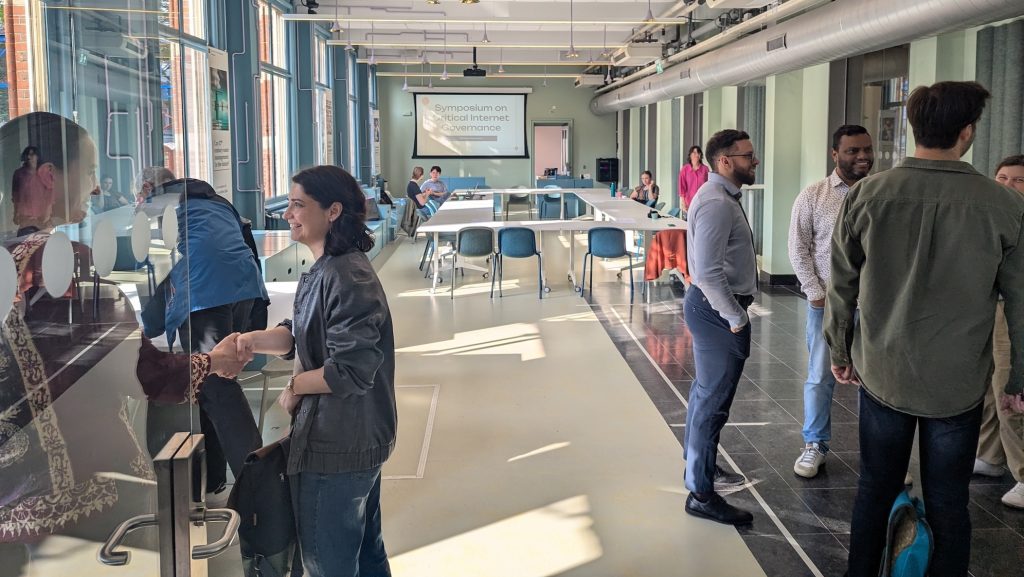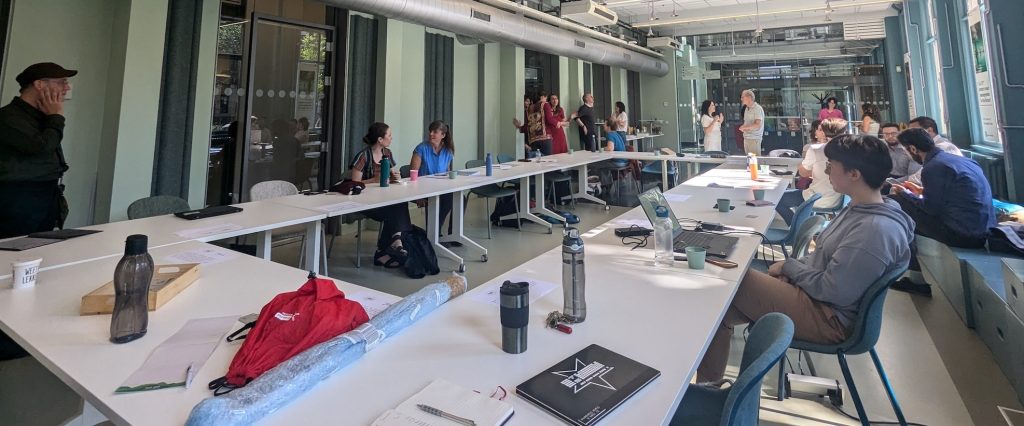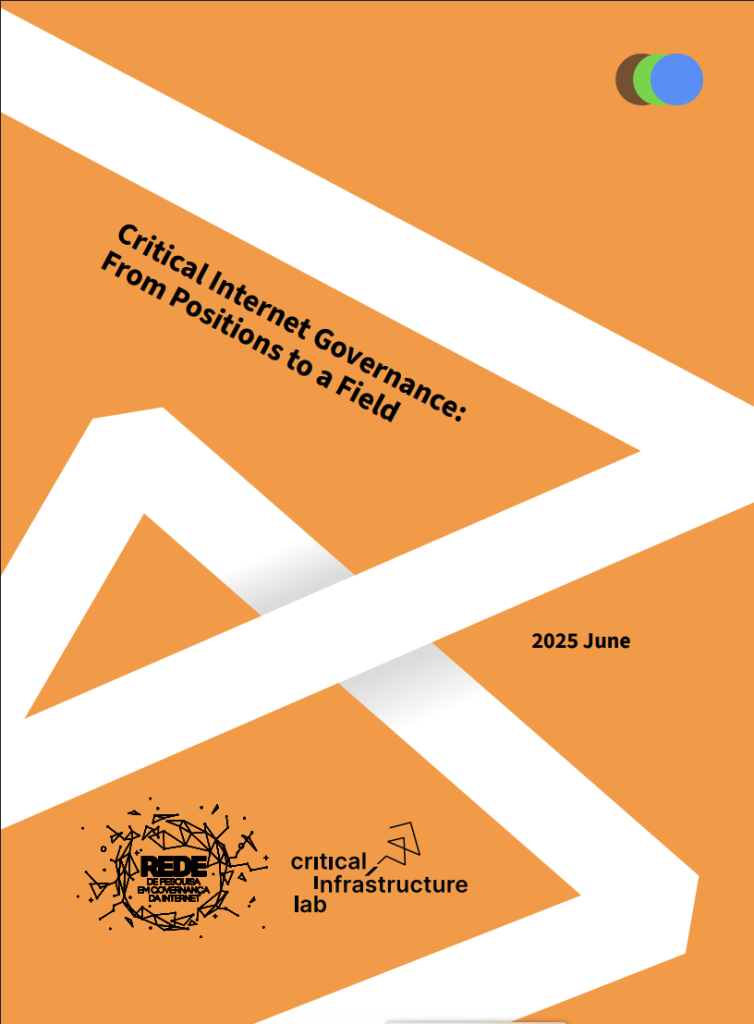Critical infrastructure lab launches new report on Internet Governance
By critical infrastructure lab1
The critical infrastructure lab and the Research Network on Internet Governance (REDE) are proud to present the report ‘Critical Internet Governance: From Positions to a Field’.
The study Critical Internet Governance brings together a series of essays that challenge dominant narratives and power structures in the governance of the Internet. It explores Internet governance through a critical lens, raising questions about multistakeholderism, digital colonialism, and the underlying ideologies shaping infrastructure and policy.
The authors examine topics such as the influence of artificial intelligence in education, the ecological impact of digital technologies, the corporate control of Internet standards, and the geopolitics of the European Union’s digital transition. The essay also delve into alternative models of governance, including people-centered infrastructure and the “ethno-stack,” and highlight tensions around sovereignty, transparency, and environmental sustainability. The study invites a rethinking of Internet governance not as a neutral or purely technical field but as one deeply entangled with social, political, and ecological realities.
With support from the Internet Society Foundation Research grant program, the critical infrastructure lab serves as a knowledge base for digital civil society, emphasizing the understanding of evolving power dynamics and resource dependencies in Internet infrastructure. It explores how marginalized stakeholders influence governance and standards while investigating alternative futures that prioritize the public interest in the Internet.
Critical Internet Governance: A Beginning
For many people, the early Internet was a place they didn’t know but felt like home. The current Internet feels familiar, but it has begun to feel less like home. This sensation is the seed from which the field of critical Internet governance is emerging.
The field of Internet governance originates from a more optimistic time when the Internet was viewed as a space for exploration in terms of content, connection, and governance rather than extraction. During this period, the Internet was accessed through independent Internet Service Providers instead of large telecommunication companies.
The Internet has evolved, and the field of Internet governance studies should evolve as well. The report ‘Critical Internet Governance: From Positions to a Field’ aims to stay current with these developments.

Fields and positions
In 2024, the critical infrastructure lab and the Research Network on Internet Governance (REDE) brought together a group of scholars to reflect on this transition and explore what a field of critical Internet governance could become by integrating decolonial, environmental, and sovereign perspectives into discussions of Internet Governance (IG) policy and material network infrastructures. The contributions, consisting of short position papers, address the three broad topics that aim to extend the interpretative reach of the IG field.
Due to the North-South collaboration, decolonial voices were prominently represented in the event. These contributions served as a backbone that shaped the overall direction and methodological approach of critical Internet governance, opening the field dialogically to the future.
Batista Israel, Beltràn, Sautchuk Patrício, and Rosa provide various perspectives on reframing the core research questions of the field through action-oriented and liberatory lenses. Together, their work outlines the current deficiencies in the field, advocates for decentering Western viewpoints, and contributes to forming a structure of feeling (Williams 1981) that can act as a conceptual space for renewing IG. Their proposals include examining the current state of techno-epistemic colonialism present in institutions and academic discourses on IG (Batista Israel) as a starting point, fostering critical AI literacy (Sautschuk Patrício), creating an infrastructural critique that addresses all levels of infrastructural embeddedness (Beltràn), and leveraging critical pedagogy to transcend the limitations within the field (Rosa). Rone’s contribution, presented from an Eastern-European perspective on technological sovereignty in the EU, effectively underscores that the center-periphery dynamics as an analytical framework remain pertinent across geographical scales.
A second cluster of position papers examines, from below, the power relations shaping the infrastructural realities of IG — renewing the field through cross-pollination with critical approaches from political ecology (Jansen), social movement studies (Paris), and political economy (Perarnaud; Vicentin and Anastácio). Similar to the decolonial positions, these papers utilize a normative foundation to propose constructive directions for Internet infrastructure and its academic study. While Jansen diagnoses the broader context of infrastructural modernization that must be addressed (i.e., the ecological crisis), Paris recovers theories of change capable of breaking the mold of current infrastructural ideologies. In this context of responsibility and potential, Perarnaud’s landscape analysis of corporate saturation in IG, along with the decolonial mapping of rural agricultural ‘platformization’ by Vicentin and Anastácio, highlights the detrimental effects of Internet infrastructure on its full strategic significance.
A third cluster of contributions takes cognitive mapping (Jameson 1988) — to locate IG scholars within the totality of social relations — as their primary task, whether in network infrastructures (Musiani), in history (Maxigas), or in the future (ten Oever).
This publication was made in the spirit of “learning in the open”—that is, sharing the research process and the discussion points rather than seeking to have the last word in a debate. It is an invitation—and hopefully an inspiration—for taking ideas and running with them, redrawing the borders of the field or abandoning them altogether. We find that for prefigurative politics, the values articulated through the research process are as important as the eventual outcomes.

Next steps
There are numerous ways in which critical Internet governance can be achieved. The symposium and report represent our effort to engage academics who may not specifically identify as IG scholars or publish in IG forums, based on the belief that this approach opens the field to contextual considerations and diverse perspectives. The structure and composition of the contributions also strive to extend beyond academia and broaden the audience of critical Internet governance scholars to include activists, policymakers, and technologists themselves.
This year, the critical infrastructure lab will continue its efforts to establish a critical internet governance field and a people-centered internet infrastructure. The 2025 annual meeting of the Association of Internet Researchers will be held in Niterói, Rio de Janeiro, Brazil, marking the first time the conference takes place in Latin America. REDE and the Critical Infrastructure Lab will host a preconference to further explore the discussions and continue the conversation that began on the sidelines of the 4S conference in Amsterdam last year.
The critical infrastructure lab expresses gratitude to all the contributors for this volume, as well as to the workshop participants for their open discussions and debates on how a critical Internet governance field might develop. This work was made possible with support from the Internet Society Foundation and the Ford Foundation.
Access the full report:

Find out more about critical infrastructure lab:
– research
– website
Learn more about the Internet Society Foundation Research Grant Program.
1 The author is a grantee partner from the Research Grant Program.
Disclaimer: Viewpoints expressed in this post are those of the authors and may or may not reflect official Internet Society Foundation positions.
